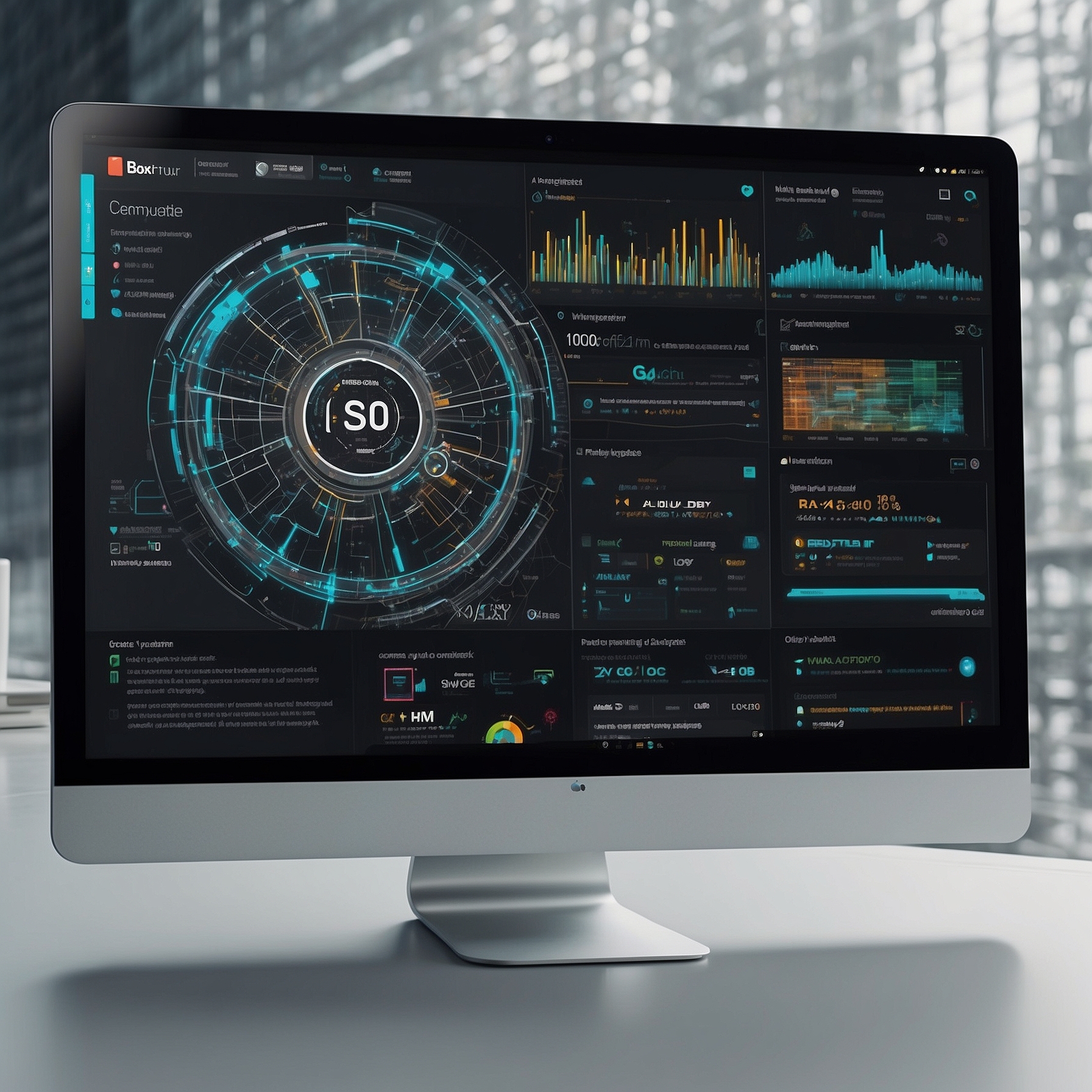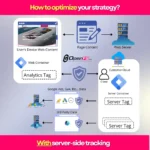In 2025, SEO has undergone a fundamental transformation. The strategies that drove traffic to websites just a few years ago are rapidly becoming obsolete as Google’s algorithm evolves with artificial intelligence at its core. For business owners and marketers who depend on organic search traffic, this shift requires not just tactical adjustments but a complete rethinking of how to approach search visibility. The rules have changed, and those who fail to adapt risk watching their rankings—and revenue—steadily decline.
The Modern SEO Landscape: What’s Changed in 2025
SEO has transformed dramatically over the past few years. What once worked reliably—keyword optimization, backlink acquisition, and technical SEO tweaks—now delivers diminishing returns as Google’s AI capabilities have matured. Today’s search algorithms understand context, intent, and semantics in ways that were unimaginable just a few years ago. This isn’t just an incremental update; it’s a paradigm shift in how search discovery works.
According to recent data, traditional SEO practices have seen effectiveness decline by up to 40% since 2023. The reason? Google is increasingly focused on delivering the best possible answer to users’ questions rather than simply matching keywords. As outlined in our guide on AI SEO in 2025, search engines now prioritize comprehensive content that demonstrates expertise and addresses user needs holistically.
Why Traditional SEO Techniques Are Failing
The symptoms of outdated SEO are becoming increasingly evident for businesses:
- Traffic plateaus despite consistent content publication
- Rankings fluctuations without clear pattern or reason
- Lower click-through rates even for top positions
- Decreased conversion rates from organic traffic
These issues stem from fundamental changes in how Google evaluates and ranks content. The search giant now employs sophisticated AI models that can recognize when content is created primarily for search engines rather than users. Content that merely hits keyword density targets without providing genuine value is being systematically devalued.
This shift represents both a challenge and an opportunity. While many businesses struggle to adapt, those who embrace the new SEO paradigm can gain significant competitive advantages. As discussed in our article on AI SEO vs. Traditional SEO, understanding these differences is crucial for maintaining visibility.
Building a Modern SEO Strategy That Actually Works
Adapting to the new SEO landscape requires more than superficial changes to existing strategies. It demands a fundamental rethinking of how we create, optimize, and distribute content online. The most successful approaches now integrate multiple channels and formats while maintaining unwavering focus on delivering exceptional user value.
Key Elements of Effective SEO in 2025
A modern SEO strategy should incorporate these essential components:
- Intent-focused content: Understanding and addressing the actual questions behind search queries rather than simply targeting keywords
- Topic authority: Building comprehensive coverage around key subject areas rather than creating isolated pieces of content
- Multi-format content: Expanding beyond text to include video, audio, and interactive elements that engage users in different ways
- AI-optimized semantics: Using natural language that addresses related concepts without forced keyword insertion
- User experience metrics: Prioritizing engagement signals like time on page, interaction rate, and return visits
Implementing these elements requires a shift in mindset. Rather than seeing SEO as a technical exercise in manipulating ranking factors, successful businesses now approach it as an extension of their overall customer experience strategy. For a deeper dive into modern optimization techniques, our guide on SEO Made Simple provides actionable insights for businesses of all sizes.
Practical Tips for Business Owners
If you’re feeling overwhelmed by these changes, start with these practical steps:
- Audit your existing content for opportunities to expand topic coverage
- Review your analytics to identify high-performing content that can be updated and enhanced
- Invest in video content creation, even if starting with simple formats
- Focus on creating genuine value rather than hitting arbitrary content metrics
- Consider working with specialists in search engine optimization who understand the new landscape
Remember that the goal isn’t to game the system but to align your content strategy with what both users and search engines now value: comprehensive, authoritative information that genuinely helps people solve problems or answer questions.
Leveraging YouTube: The Overlooked SEO Powerhouse
One of the most significant opportunities in the new SEO landscape is the strategic use of YouTube. As the second-largest search engine in the world (after Google itself), YouTube offers tremendous potential for discovery that many businesses are still overlooking.
Why Video Content Matters for Modern SEO
Video content has become increasingly important for several reasons:
- Google frequently features video results prominently in search results
- Video content tends to generate stronger engagement signals that influence rankings
- YouTube videos can rank both within the platform and in traditional search results
- Video content addresses the preference many users have for visual learning
The masterclass by Wes McDowell referenced in our opening highlights how businesses can leverage YouTube specifically for client attraction. This approach treats YouTube not just as a content platform but as a strategic client acquisition channel that integrates with your broader marketing efforts.
For businesses new to video marketing, our article on SEO Marketing explores how different content formats can complement each other in a comprehensive strategy. The key is creating video content that adds unique value rather than simply repurposing existing material.
The AI Revolution in Search: Implications for Content Creators
Artificial intelligence has fundamentally changed how search engines understand and rank content. This shift goes far beyond superficial algorithm updates to transform the very nature of search discovery.
How AI is Reshaping Content Discoverability
Today’s search algorithms employ sophisticated natural language processing to understand content in ways that closely mimic human comprehension. This has several important implications:
- AI can recognize when content genuinely addresses user needs versus when it’s optimized primarily for search engines
- Search engines can now identify the expertise level and factual accuracy of content
- Algorithms can evaluate the structure and flow of content to assess its readability and usefulness
- AI can make connections between topics that might not be explicitly linked through keywords
These capabilities mean that content creators must think beyond traditional SEO metrics. As explored in our guide on AI SEO Tools, the technology isn’t just changing how search engines work—it’s also providing new opportunities for content creators to understand and address user needs more effectively.
Crafting AI-Discoverable Content
Creating content that performs well in this new environment requires a different approach. One example from the masterclass involves crafting press releases that are optimized for AI discoverability. Rather than focusing narrowly on keyword placement, effective press releases now:
- Provide comprehensive context around announcements
- Include quotes and perspectives that add depth to the core information
- Address potential questions readers might have about the news
- Use natural language that flows conversationally rather than keyword-stuffed phrases
- Incorporate structured data to help AI systems understand the content’s meaning and relevance
For businesses looking to implement these techniques, our guide on Structured Data provides practical guidance on making content more machine-readable while maintaining human appeal.
Adapting Your Business for SEO Success in 2025 and Beyond
The evolution of SEO isn’t just a technical challenge—it’s a business opportunity. Organizations that adapt quickly to these changes can capture market share and establish stronger positions in their industries.
The masterclass training mentioned earlier offers practical insights into implementing these strategies. However, the fundamental principle remains consistent: successful SEO now requires creating genuinely valuable content that addresses real user needs across multiple formats and platforms.
For businesses serious about improving their search visibility, working with experienced professionals can accelerate the adaptation process. Services like web design and development that incorporate SEO best practices from the ground up can provide a strong foundation, while ongoing conversion rate optimization ensures that increased traffic translates to business results.
The businesses that will thrive in this new environment aren’t necessarily those with the largest budgets, but those most willing to embrace change and focus relentlessly on delivering exceptional value to their audiences.
FAQs About Modern SEO Strategies
How quickly will I see results from implementing new SEO approaches?
Unlike some traditional SEO tactics that promised quick wins, modern SEO is more akin to building brand authority—it typically takes 3-6 months to see significant results. However, these results tend to be more stable and sustainable over time. For more insights on timeframes, check our article on how long SEO takes to rank.
Is traditional keyword research still relevant in 2025?
Keyword research remains valuable but has evolved significantly. Rather than focusing on exact match phrases and density, modern keyword research centers on understanding topics, user intent, and the questions people are asking. The goal is to identify subject areas where you can provide genuine expertise, not just phrases to target.
Should small businesses invest in video content even with limited resources?
Absolutely. Video doesn’t need to be high-production to be effective. Even simple explanation videos, screen recordings, or informal Q&A sessions can significantly enhance your SEO presence. The key is providing value rather than production quality. Start small, be consistent, and expand your video strategy as resources allow.
How do I know if my current SEO strategy needs updating?
Several warning signs indicate an outdated approach: declining organic traffic despite continued content creation, rankings that fluctuate dramatically with algorithm updates, high bounce rates from search visitors, or content that ranks but doesn’t convert. If you’re experiencing these issues, it’s time to reevaluate your strategy using the principles outlined in this article.
 Written by: Romulo Vargas Betancourt
Written by: Romulo Vargas Betancourt
CEO – OpenFS LLC







